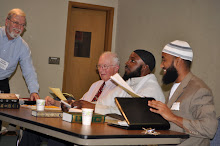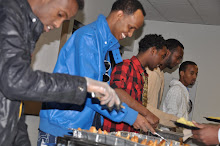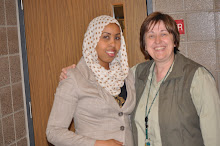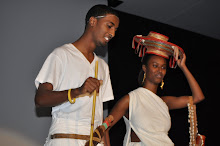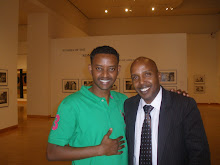
By Kari Petrie • kpetrie@stcloudtimes.com • October 29, 2008
Read Comments(145)Recommend (2)Print this page E-mail this article Share Del.icio.us
Buzz up! Is Sen. Barack Obama black or multiracial? How much does it matter?
Why is Sen. Hillary Clinton described as too ambitious and Gov. Sarah Palin as too traditional? How much does that matter?
The issue of race and gender in the 2008 presidential election was the topic of a panel discussion Tuesday night at St. Cloud State University.
There has been an obsession with Obama's race and Clinton's gender since the race to the primary election began in early 2007, said panelist Enid Lynette Logan, who teaches at the University of Minnesota. She's also doing election research with students.
Panelists considered how race and gender have played out during the election season and what it means from a historical perspective.
Having a black man as a presidential candidate created the perfect case study in American race relations, Logan said.
Obama's candidacy has brought the taboo subject of racism into public discussion, said fellow panelist Yolanda Denson Lehman, who teaches at St. Cloud State University.
The presence of a female candidate in the race has also highlighted the strides women have made in society, panelist Michelle Kukoleca Hammes said. She also teaches at the university.
Few people have questioned how Palin will take care of her children while campaigning and if elected, Hammes said. Just 10 years ago, that question would have been asked by many.
Many women identify with Palin because she is a woman who is trying to do it all by having children and holding office, Hammes said.
Logan's research asks undergraduates at the University of Minnesota a variety of questions about race and the election, including how they identify Obama's race and if Obama is elected, what effect that will have on race relations.
Overall, students did not think race relations would improve if Obama were elected, said Ayianna Kennerly, Logan's research assistant.
"(A student) said it would take a lot more than a president to make that change," she said.
Lehman said the question of who needs to solve the problem of racism has come up in her classes as part of the discussions.
Many students feel those with the privilege should solve the problem, she said, but for her it will take a little more than that.
"It will change when all of us decide to confront it," she said.
Students attending the panel said they liked learning about Logan's research and what other young people think about the issues.
St. Cloud State student Sara Czech said she thought it was interesting that respondents said they couldn't describe Obama using stereotypes of what is a black man, but then would answer other questions by describing him within those stereotypes.
Panelists also raised the question of what would be more historical: electing a female president or a black male president.
That question is hard to answer, Czech said, because both groups have worked so hard.
Hammes also spoke about discussions that have emerged regarding who is a real American.
A perception has developed that traditional roles make someone an American, Hammes said.
"It's hard to come up with the definition of American," she said.
